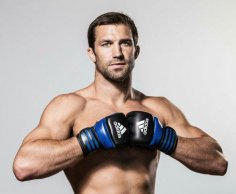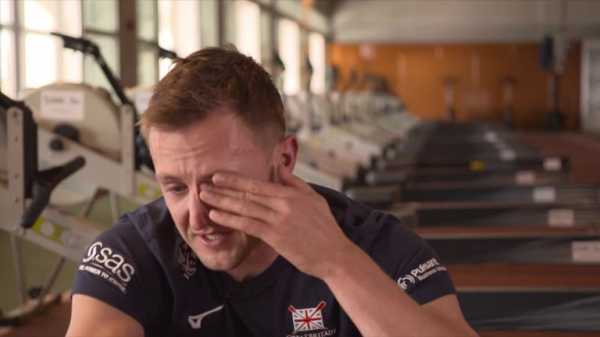
6:49
Team GB’s men’s rowing team are pushing their bodies to the limit, physically and emotionally, as they target medal success at the Tokyo 2020 Olympic Games
Sky Sports News reporter Geraint Hughes visits the Team GB men’s rowing team’s gruelling training camp in Spain, as their preparations for the Tokyo 2020 Olympic Games ramp up…
Why would a 6ft-plus giant of man break down in tears? He’s an Olympic rower, physically he is as fit as a human can be, he enjoys his sport, he likes his colleagues and he has a loving family.
The answer is simple. The drive to become an Olympic Champion can do funny things to the mind and 6ft-plus giants are still humans with emotions.
- ‘Climbing at Tokyo 2020 will be surreal’
- Eleven-year-old skateboarder sets sights on Olympics
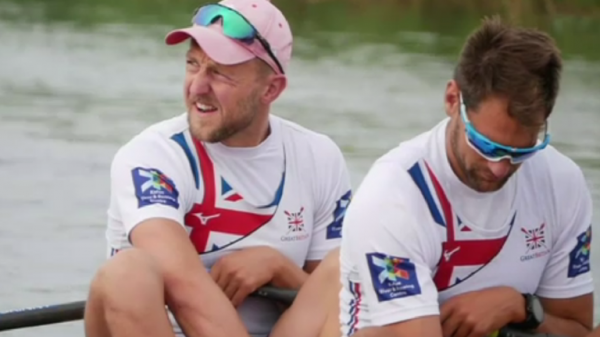
Fatigue through a punishing training camp, lack of sleep, all at an altitude of 7500ft, may also drive a grown man to tears.
John Collins, who competed in the men’s double sculls event in Rio four years ago, won’t mind me telling you that it was him who broke down in tears when I asked him why he was so driven, so desperate to win a medal as a Team GB rower at Tokyo 2020.
He’d narrowly missed out on a medal four years ago in Brazil, so years of training, pain and innumerable family sacrifices have become amplified as he aims for selection for Team GB at Tokyo.
“Rio opened my eyes to what a results-based industry the Olympics is,” he told Sky Sports News.
“Coming back without a medal is haunting in ways you would never possibly foresee going into it.
“You do very much feel like an ‘also-ran’ if you haven’t got medals.”
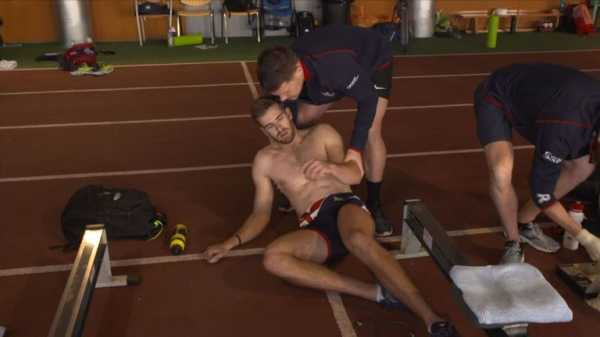
When asked about what medal success at Tokyo 2020 would mean for Collins, he said: “Peace I think, but also rewarding the people that have supported us.
“Your friends and family are so happy that you are just there.
“The reason why I am getting so emotional is that you really want to give them a medal to give them something back.”

His emotion was raw and genuine.
Collins was also exhausted. He was nearing the end of a two-week altitude camp in the Sierra Nevada Mountains in Spain and at around 7500ft, the effects of altitude are marked.
Oxygen is at a premium even if you are just walking, so pounding a rowing machine for hours, drill after drill, can be extraordinarily challenging.
So why do it? Well, during the winter months is when a lot of athletes, not just rowers, will put in the hard training to get themselves to the fitness levels needed to not just compete at an Olympics, but to be selected.
The training can be brutal, but training at altitude can speed up the fitness process, as Collins put it: “Two weeks of utter pain here replicates three weeks of pain at sea level.”
Could you eat 8,000 calories a day for Olympic gold?
- GB rowers eat more than 8,000 calories a day at altitude – that’s 3000 more than Anthony Joshua eats during training
- Breakfast often includes SIX poached eggs, EIGHT pieces of toast, porridge and cereal
- They’ll actually have TWO breakfasts – one before and after training
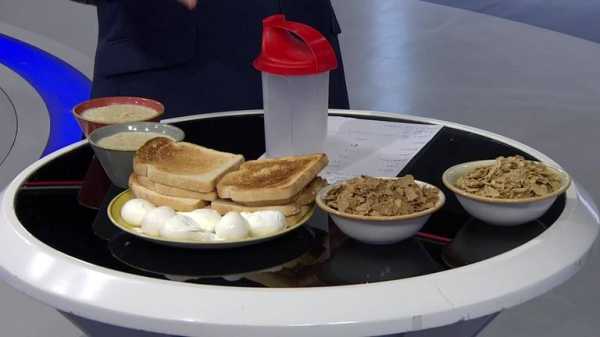
3:03 Could you eat 8,000 calories a day in the hunt for Olympic gold? Sky Sports News digests what the Great Britain rowing team consume…
All of Collins’ team-mates were physically spent, coming towards the end of their two-week stint in the Sierra Nevada Mountains.
Vision narrows, lungs burn and occasionally the body gives up once the target is reached, collapsing off their rowing machines into the arms of capable and caring support staff.
Using a high-performance facility at altitude, GB Rowing is giving its head coach Jurgen Groebler his best shot at assembling a men’s squad capable of delivering medals.
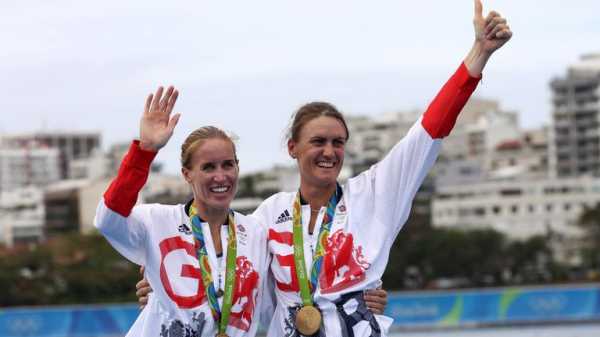
For Tokyo, he is also in charge of ensuring the women’s squad delivers podium glory.
The team as a whole is one of Team GB’s greatest success stories, having won a gold medal at every Games since 1984. No other sport can match that.
Part of the training process and part of the reason for an altitude camp that hurts is to push GB rower’s beyond what they think their physical and mental limits are.
So when they line up in an Olympic Final, as they invariably do, it’s not the worst thing they’ve been through that year either mentally or physically.
It’s a different way of preparing, but it works; 63 Olympic medals and counting.
Sourse: skysports.com
